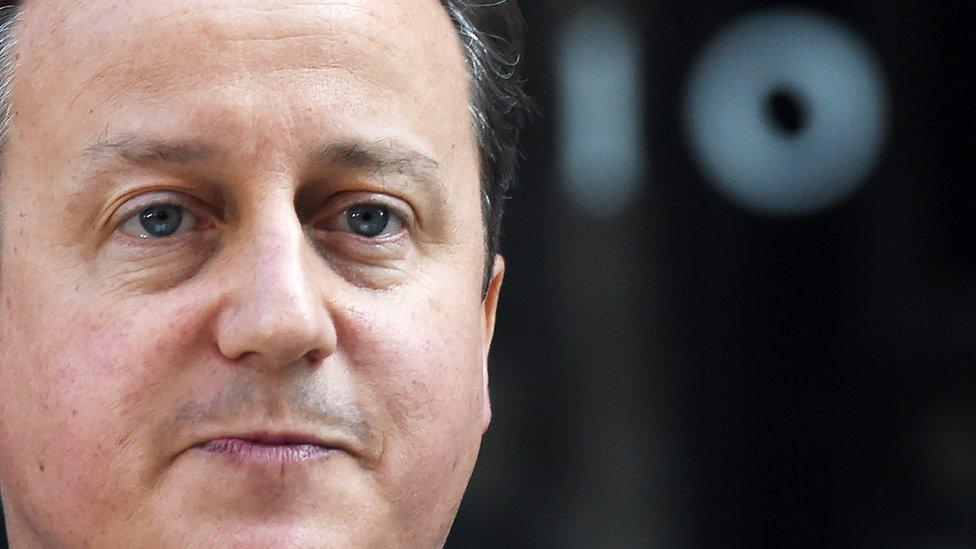The growing list of questions for David Cameron
- Published
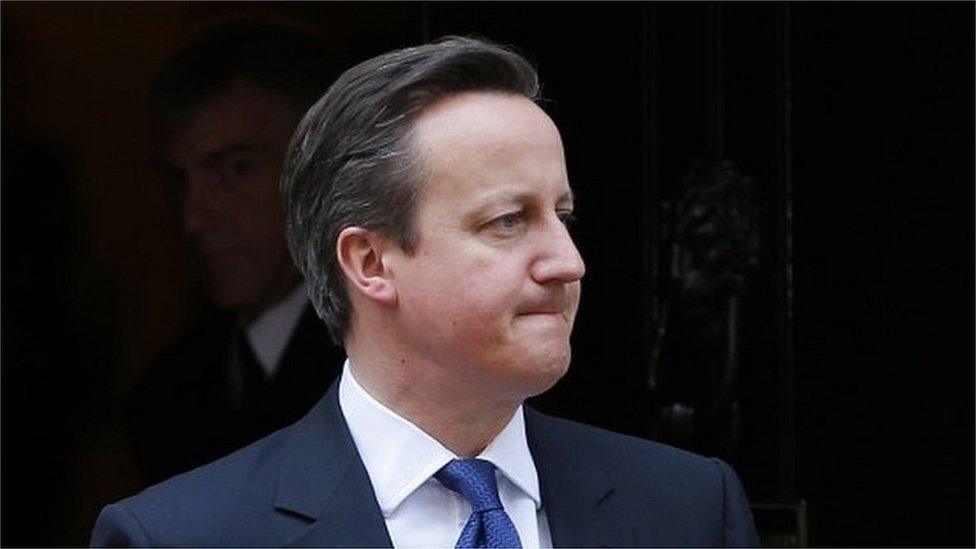
David Cameron's post-Downing Street business role is coming under scrutiny. So what queries does he need to address?
It was on Friday 19 March - more than three weeks ago - that the Financial Times first reported on the businessman, the former prime minister - and access to the current government.
Since then, via the FT and the Sunday Times, Labour and some disclosures by those under intense scrutiny to explain their actions, a growing picture has begun to emerge.
But before we plunge into the detail, why does any of this matter?
Forget the individuals concerned; forget what the rules are.
Over the years, the decades, the names change, the parties in government change, the regulations change.
In the end, one question stands above the others: Does it pass the sniff test? Does it feel right? And that's up to you as a reader to decide.
Here's what you need to know before we start.
When David Cameron was prime minister, Lex Greensill, an Australian banker, became an adviser in Downing Street.
When Mr Cameron was no longer prime minister, Mr Greensill hired him as an adviser. The relationship, reversed.
And what marketable assets do former politicians have? They know how government works. And they know who works in government.
So they are often hired as lobbyists - people who attempt to influence the government.
Lobbying, by individuals, businesses, charities and trade unions, is part of the normal functioning of a democracy.
New rules needed?
But can you pay for better access, by hiring those with great contacts? The clear evidence is you can. And so how transparent is this?
How many people can text the chancellor and a get reply?
Mr Cameron can, and Mr Cameron did.
How many can go for a "private drink" with the health secretary?
Mr Cameron can, and Mr Cameron did.
He hasn't broken any rules, but plenty argue it's the rules themselves that are broken. Plenty, it turns out, including Mr Cameron.
Eleven years ago, shortly before becoming prime minister, he said: "We all know how it works. The lunches, the hospitality, the quiet word in your ear, the ex-ministers and ex-advisers for hire, helping big business find the right way to get its way."
Every time further revelations about this ex-prime minister's quiet words and a private drink have emerged, we've asked for an interview with him.
Every time, he has said no.
So here's what I'd ask him if he would sit down in front of a camera:
When did you first meet Lex Greensill?
Why did you bring Mr Greensill into Downing Street as an adviser?
Why wasn't that appointment publicised at the time he was first appointed?
How much contact did he have with you when you were prime minister?
How soon after you left Downing Street was he in touch?
And, once you'd left office and you had served out the two-year ban imposed on ex-ministers before they are allowed to lobby, on what terms were you hired by Mr Greensill?
Was it explicitly your job to be his lobbyist?
How much did he pay you?
What share options did you have?
We now know of four ministers you lobbied on behalf of Mr Greensill. Are there any more? How many have you texted? Phoned? Taken out for drinks or any other hospitality?
Was it a mistake to text and call the chancellor directly?
What did you and Mr Greensill hope to achieve from a private drink with Health Secretary Matt Hancock?
Does all this prove you were right all along in 2010 when you were so outspoken about the perception of lobbying held by so many beyond Westminster?
Mr Cameron is now a private citizen and may brush off at least some of these questions as being nobody's business other than his own.
He would also point out that an investigation by the Registrar of Consultant Lobbyists concluded that his activities did "not fall within the criteria that require registration on the register".
His work, in other words, was beyond their scope. As the paid employee of a company, he did not have to register his lobbying.
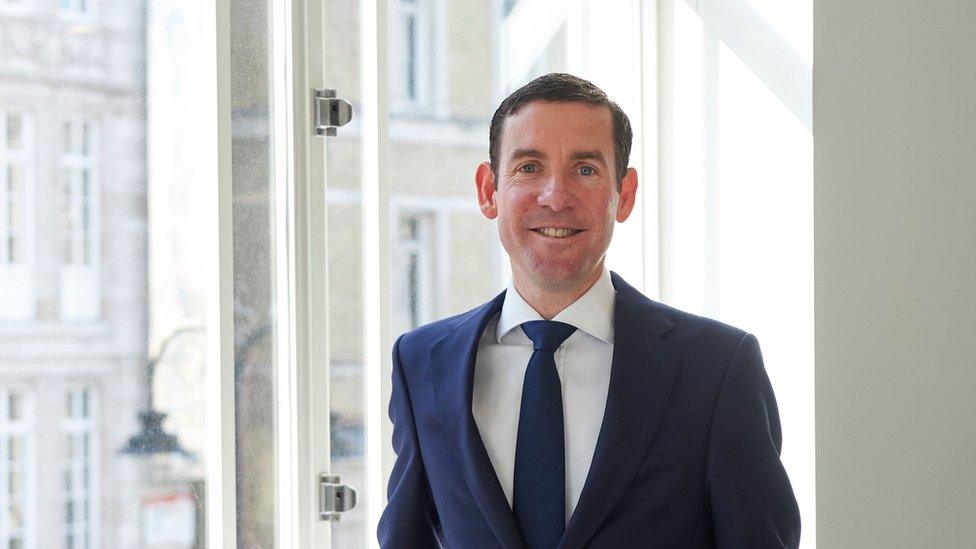
Lex Greensill was an unpaid government adviser
So should lobbying by former ministers be banned entirely? Is it possible to regulate away personal relationships and contacts?
Lobbying within the rules is perfectly legal, and a half-decent lobbyist will aim to further the aims of their employer, within the rules, by making the most of their contacts.
And so there are questions for far more people than just Mr Cameron:
For the ministers he lobbied
For Lex Greensill, who has also refused to speak publicly about any of this, but whose friends say his payment scheme for the NHS was offered for free
And for the government, over how it responded to Mr Cameron getting in touch, and whether the lobbying rules are good enough
But an interview with Mr Cameron would be a good start.
Related topics
- Published9 August 2021
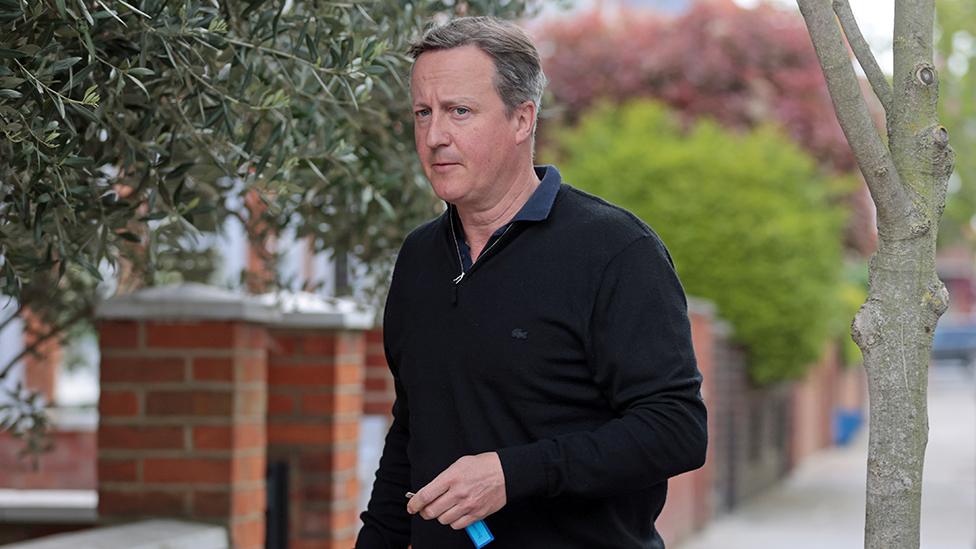
- Published31 March 2021
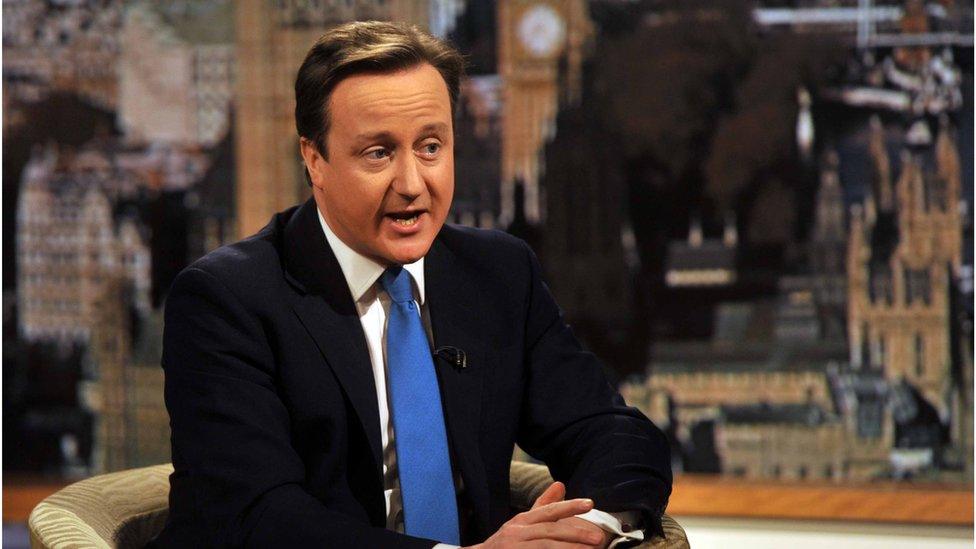
- Published30 March 2021
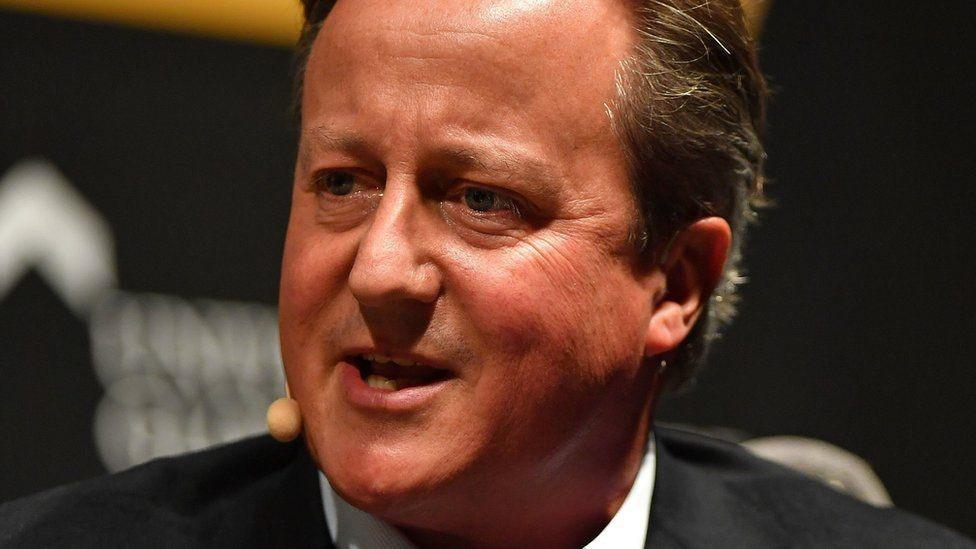
- Published9 April 2021
